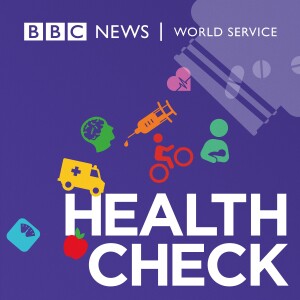
Iran was one of the first countries to be hit hard by the coronavirus. In the first population wide survey of infection rates in a Middle Eastern country, Iranian medical researchers now estimate that about one in five people on average were infected during its first wave in 18 cities in the country. But the rate varies enormously from city to city. In the city of Rasht, they estimate more than 70% of the population caught the virus. Claudia Hammond talks to Iranian infectious disease researcher Maryam Darvishian about the findings and what they mean for Iran’s attempts to control the virus today.
We look at the sleep hygiene plight of international students whose study and sleep cycles have been thrown into chaos because of Covid travel restrictions. We hear the experiences of a student in Singapore studying remotely at Columbia University in New York. Her classes are usually in the dead of night Singapore time. Harvard sleep researcher Jeanne Duffy advises on the best ways for students to plan their work/sleep patterns.
When surgical patients are under general anaesthetic, playing them soothing music and comforting messages may reduce the pain that they experience and the need for opioid pain relief in the 24 hours after their operations. This is the conclusion of a randomised study of about 400 patients undergoing surgery in five German hospitals. Claudia talks to anaesthesiologist Ernil Hansen of Regensberg University who explains how this might be working to make post-operative recovery more comfortable and less reliant on strong analgesic drugs.
Claudia’s studio guest this week is BBC Medicine and Science correspondent James Gallagher, talking about Covid-19 vaccines, how our genes influence the severity of Covid illness and how ear wax might improve blood sugar monitoring for diabetes.
Presenter: Claudia Hammond
Producer: Andrew Luck-Baker
(Picture: People wearing protective masks walk through a street in Tehran in July 2020. Photo credit: Fatemeh Bahrami/Anadolu Agency/Getty Images.)
view more
More Episodes
Weight loss gold rush
 2024-10-30
2024-10-30
 2024-10-30
2024-10-30
Organ transplant in HIV+ patients
 2024-10-23
2024-10-23
 2024-10-23
2024-10-23
Rapid malaria diagnoses
 2024-10-16
2024-10-16
 2024-10-16
2024-10-16
Micro RNA wins Nobel
 2024-10-09
2024-10-09
 2024-10-09
2024-10-09
Mpox widens its reach
 2024-10-02
2024-10-02
 2024-10-02
2024-10-02
Vector-borne diseases
 2024-09-25
2024-09-25
 2024-09-25
2024-09-25
Polio Vaccination in Afghanistan
 2024-09-18
2024-09-18
 2024-09-18
2024-09-18
Haiti: Healthcare in the Midst of Conflict
 2024-09-11
2024-09-11
 2024-09-11
2024-09-11
The race to distribute Mpox vaccines
 2024-09-04
2024-09-04
 2024-09-04
2024-09-04
Living with a new brain
 2024-08-28
2024-08-28
 2024-08-28
2024-08-28
Catching up with Covid
 2024-08-14
2024-08-14
 2024-08-14
2024-08-14
MPox outbreak worsens
 2024-08-07
2024-08-07
 2024-08-07
2024-08-07
World’s first Oropouche deaths in Brazil
 2024-07-31
2024-07-31
 2024-07-31
2024-07-31
Systemic racism in health care
 2024-07-24
2024-07-24
 2024-07-24
2024-07-24
Toxic positivity
 2024-07-17
2024-07-17
 2024-07-17
2024-07-17
Can light emitting bandages treat cancer?
 2024-07-03
2024-07-03
 2024-07-03
2024-07-03
012345678910111213141516171819
Create your
podcast in
minutes
- Full-featured podcast site
- Unlimited storage and bandwidth
- Comprehensive podcast stats
- Distribute to Apple Podcasts, Spotify, and more
- Make money with your podcast
It is Free
- Privacy Policy
- Cookie Policy
- Terms of Use
- Consent Preferences
- Copyright © 2015-2024 Podbean.com



